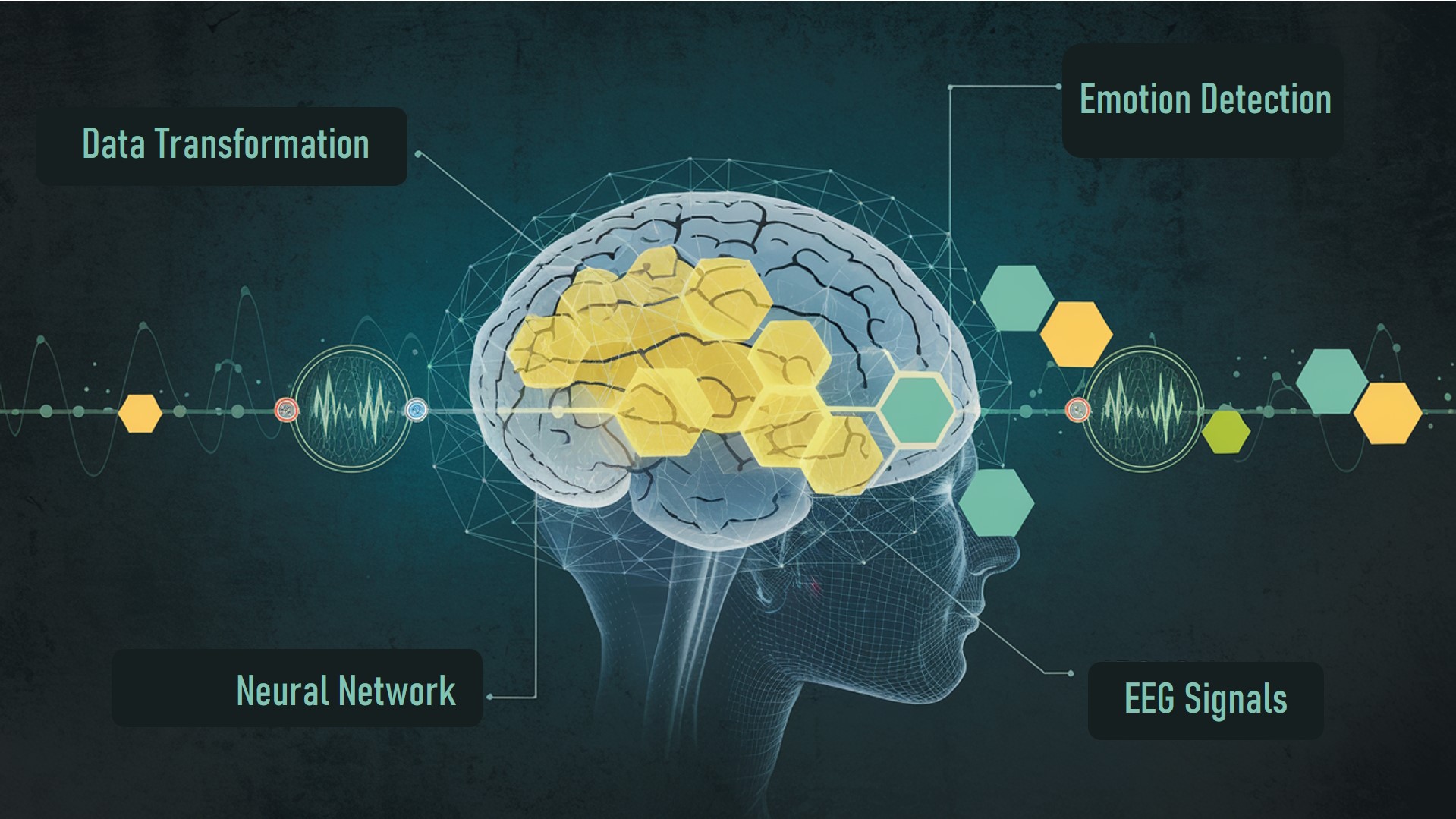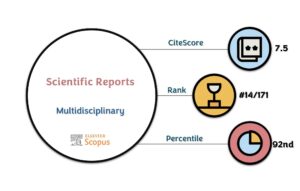Ahmadzadeh Nobari Azar, N., Cavus, N., Esmaili, P., Sekeroglu, B., & Aşır, S. Detecting emotions through EEG signals based on modified convolutional fuzzy neural network. Scientific Reports, 2024, 14:10371.
The study proposes an improved Convolutional Fuzzy Neural Network (CFNN) model for emotion detection using EEG signals. Emotion recognition is a valuable tool for understanding individual behavior and mental states. Recently, EEG data has gained attention for emotion detection due to its accuracy compared to conventional methods, which often struggle with facial expressions or voice manipulation. However, the complexity and noise in EEG signals present challenges for traditional machine learning algorithms.

The study employs advanced preprocessing techniques to filter noise and extract meaningful features, utilizing Fast Fourier Transform (FFT) to derive frequency-domain characteristics. The CFNN model combines convolutional layers for feature extraction and fuzzy logic layers for transforming extracted features into fuzzy values, enhancing the model’s recognition ability. Subsequently, these fuzzy values are converted into crisp values for final classification. This approach reduces noise sensitivity, optimizes feature representation, and achieves superior performance in emotion classification.
Experiments conducted on the DEAP dataset, a benchmark for emotion recognition, demonstrate the model’s efficacy. The CFNN achieved high accuracy rates of 98.21% for valence (positivity) and 98.08% for arousal (emotional intensity), significantly outperforming other state-of-the-art methods. The study highlights the effectiveness of the proposed method compared to traditional machine learning and deep learning techniques such as SVM, KNN, and CNN.
The dataset consists of EEG signals recorded from 32 participants while watching emotion-evoking videos. The model’s performance was tested with varying training/testing splits and feature extraction window sizes, showing robustness and reduced risk of overfitting. The combination of convolutional and fuzzy logic layers allowed the model to emulate human reasoning and provide highly accurate classifications.
This research presents an innovative approach to emotion recognition using EEG signals, with potential applications in human-computer interaction, healthcare, and affective computing. This project was a team effort led by Nasim Ahmadzadeh Nobari Azar, a Biomedical Engineering PhD student under the supervision of Assoc. Prof. Dr. Süleyman Aşır. Experts from various disciplines collaborated on it, including Prof. Dr. Nadire Çavuş from the Computer Information Systems department and Assoc. Prof. Dr. Boran Şekeroğlu from Computer Engineering. The research presented in this publication benefited greatly from their combined expertise. Future work will explore multi-class emotion detection and validate the model on different datasets for broader generalization.
Assoc. Prof. Dr. Süleyman Aşır is an associate professor at the Faculty of Engineering, Near East University. His research focuses on organic synthesis, photochemistry, functional dyes, dye-sensitized solar cells, biosensors, and molecularly imprinted polymers. With a strong background in interdisciplinary studies, he contributes to the development of innovative materials and technologies in these fields. For those interested in advanced materials, biosensors and photochemical applications, Assoc. Prof. Dr. Süleyman Aşır ([email protected]) is available for inquiries and collaboration.
Abstract
Emotion is a human sense that can influence an individual’s life quality in both positive and negative ways. The ability to distinguish different types of emotion can lead researchers to estimate the current situation of patients or the probability of future disease. Recognizing emotions from images have problems concealing their feeling by modifying their facial expressions. This led researchers to consider Electroencephalography (EEG) signals for more accurate emotion detection. However, the complexity of EEG recordings and data analysis using conventional machine learning algorithms caused inconsistent emotion recognition. Therefore, utilizing hybrid deep learning models and other techniques has become common due to their ability to analyze complicated data and achieve higher performance by integrating diverse features of the models. However, researchers prioritize models with fewer parameters to achieve the highest average accuracy. This study improves the Convolutional Fuzzy Neural Network (CFNN) for emotion recognition using EEG signals to achieve a reliable detection system. Initially, the pre-processing and feature extraction phases are implemented to obtain noiseless and informative data. Then, the CFNN with modified architecture is trained to classify emotions. Several parametric and comparative experiments are performed. The proposed model achieved reliable performance for emotion recognition with an average accuracy of 98.21% and 98.08% for valence (pleasantness) and arousal (intensity), respectively, and outperformed state-of-the-art methods.
